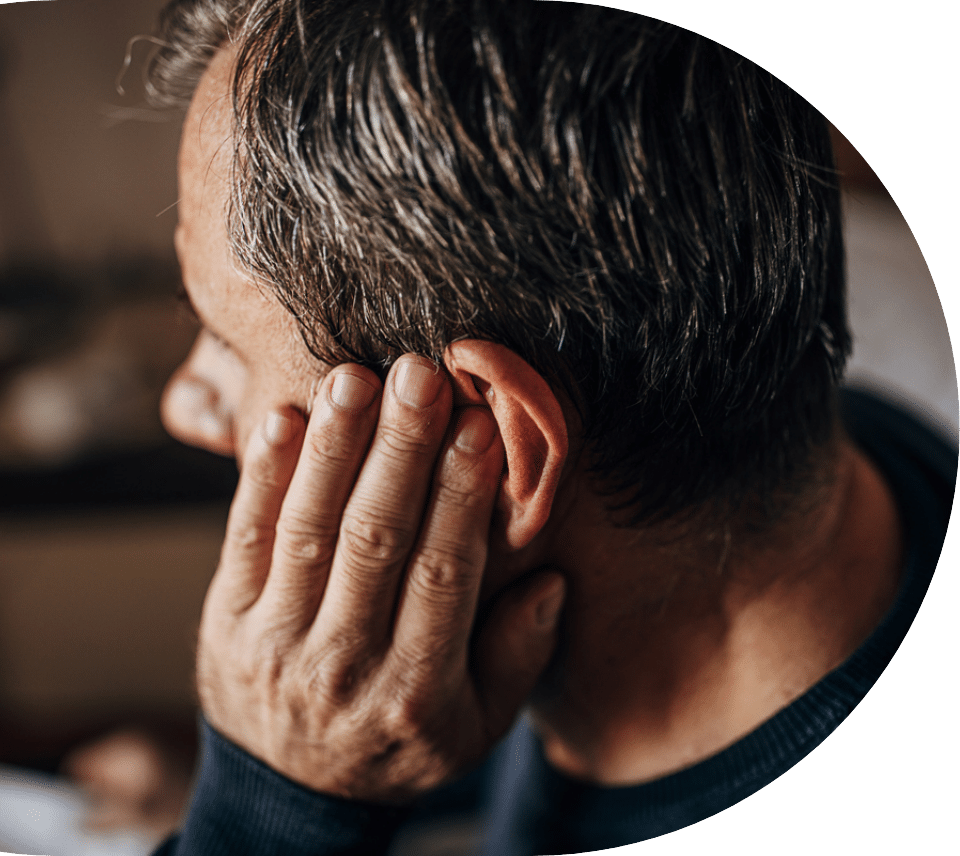Age-Related Hearing Loss in Seniors
As we age, it is not uncommon for our bodies to face various changes, and one of the most significant changes can occur in our hearing abilities. Age-related hearing loss, also known as presbycusis, is a common condition that affects millions of older individuals worldwide, with approximately 1 in 3 people between the ages of 65 and 74 having the condition. If left untreated, age-related hearingloss (presbycusis) can lead to diminished quality of life, social isolation and can increase the risk of cognitive disorders such as dementia.

What is Presbycusis?
Presbycusis refers to the gradual hearing loss that occurs as a natural part of the aging process. It typically begins around the age of 60 and worsens over time. This condition can influence one’s ability to hear high-pitched sounds and understand speech, mainly in noisy environments. While presbycusis is considered a normal part of aging, the impact on an individual’s daily life can be significant, leading to social isolation, communication difficulties, and decreased quality of life.

Causes of Age-Related Hearing Loss
The exact cause of presbycusis remains unknown, but researchers and experts believe that a combination of both genetic and environmental factors contribute to its development. Over time, the tiny sensory cells in the inner ear, responsible for transmitting sound to the brain, become damaged or degenerate. Changes in the blood supply to the inner ear, the cumulative effects of noise exposure, and age-related changes to the auditory nerve pathways are also believed to play a role in the development of presbycusis.

Risk Factors of Hearing Loss in Seniors
While age is the primary risk factor for developing presbycusis, certain factors can increase the likelihood or severity of the condition.
Risk factors of hearing loss in seniors include:
- Prolonged exposure to loud noises throughout life.
- A family history of hearing loss.
- Smoking and excessive alcohol consumption.
- Certain medical conditions, such as diabetes and high blood pressure.
- Use of ototoxic medications that harm the auditory system.
Hearing Loss Diagnosis and Treatment
If you suspect age-related hearing loss, it is crucial to seek a thorough evaluation from a qualified senior healthcare provider, such as an audiologist or otolaryngologist. These specialists will conduct a series of tests, including a pure-tone audiometry to determine the specific frequencies and degrees of hearing loss.
While there is currently no known cure for presbycusis, several treatment options can significantly alleviate the impact of the condition.
Age-Related Hearing Loss Treatment
While age-related hearing loss is a natural process, there are steps we can take to minimize the risk and keep our hearing healthy:
- Protect your ears from loud noises: Avoid exposure to prolonged loud noises and wear ear protection, such as earmuffs or earplugs, when in loud environments.
- Maintain a healthy lifestyle: Engage in regular physical exercise, eat a well-balanced diet, manage chronic health conditions, and avoid smoking and excessive alcohol consumption.
- Regular hearing checks: Schedule regular hearing evaluations with a healthcare provider to monitor any changes and address concerns promptly.
- Educate yourself: Learn about the signs and symptoms of hearing loss, as well as the importance of hearing protection and early intervention.

Our Hearing Loss Treatment Services
Explore our prevention treatment services for age-related hearing loss. Our team is here to provide insight and guide you toward next steps.